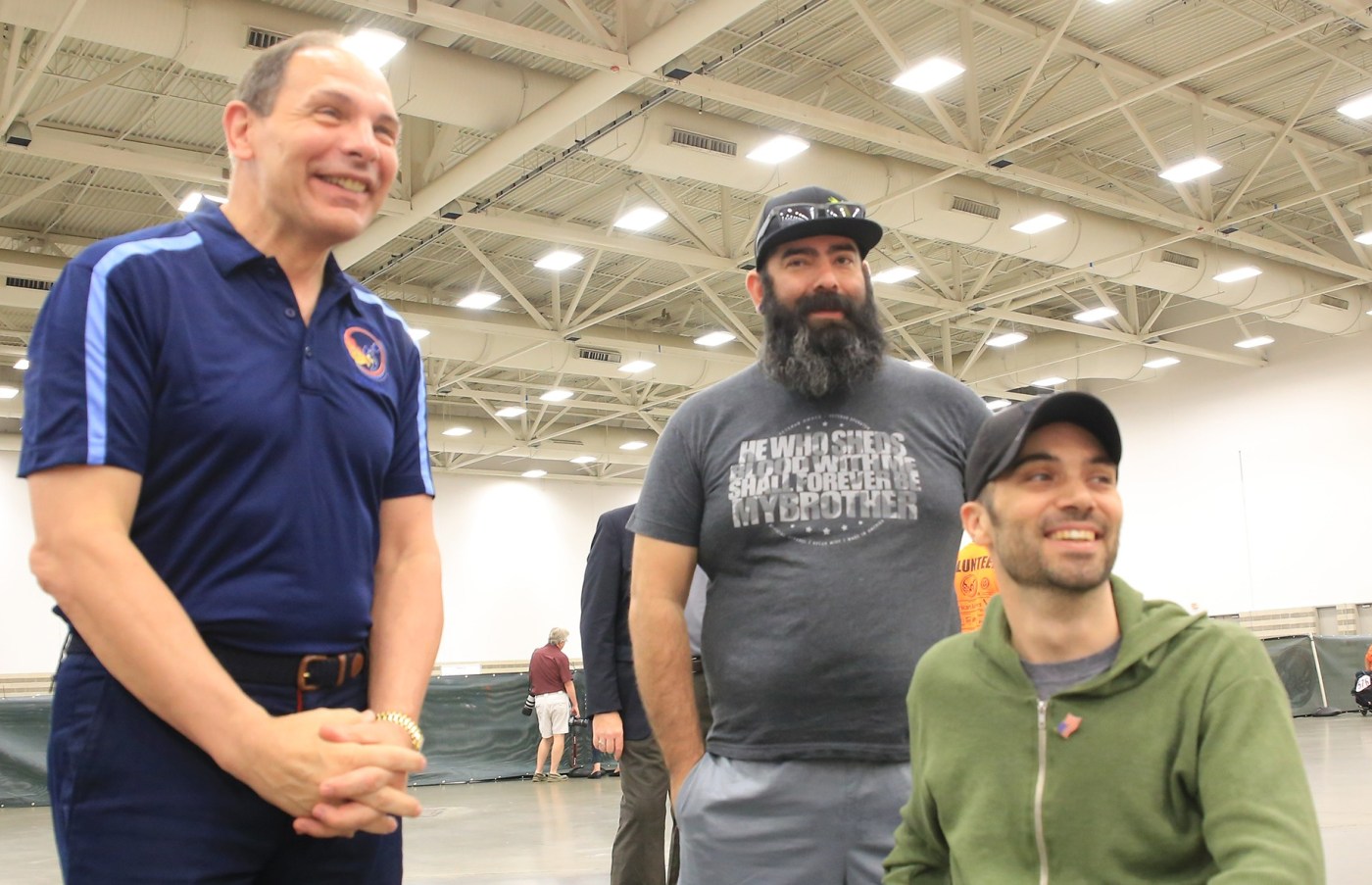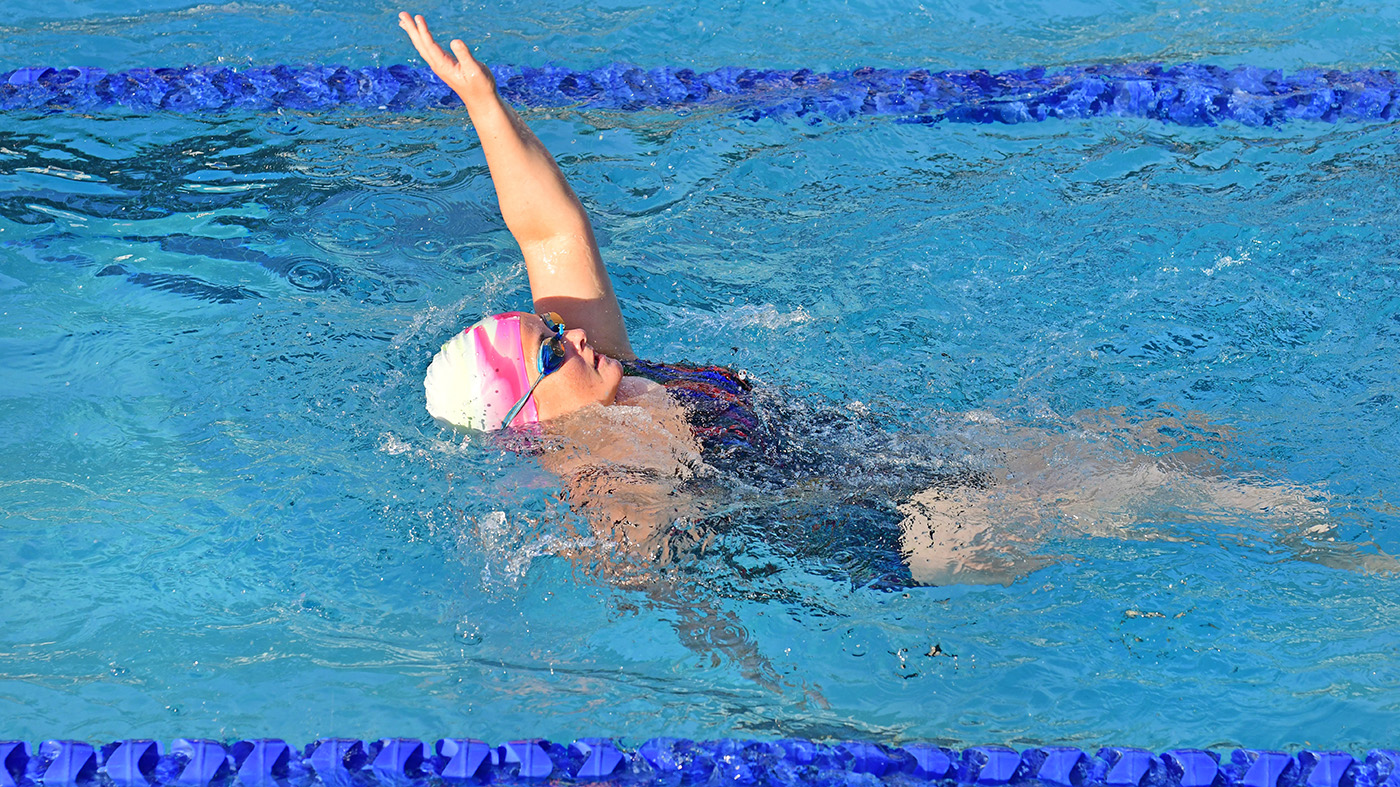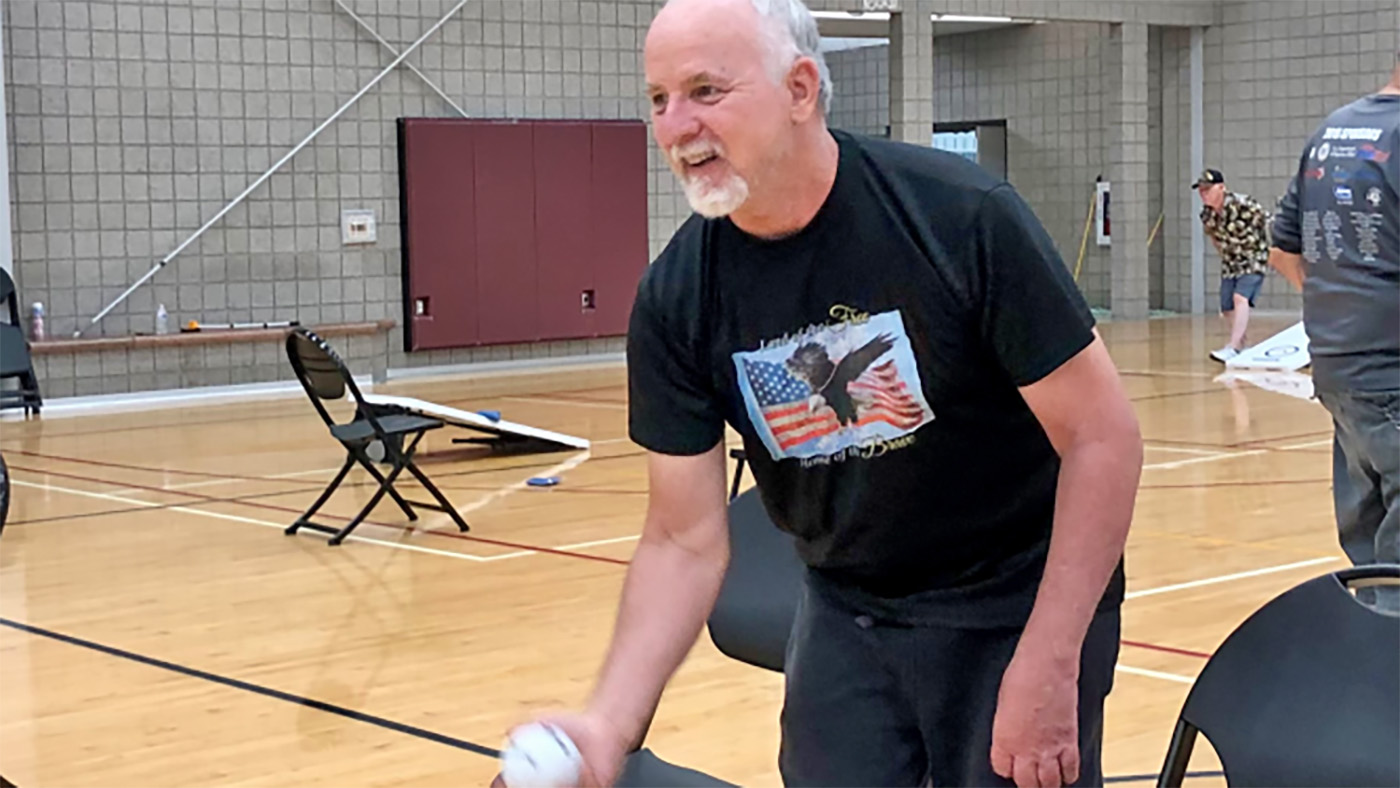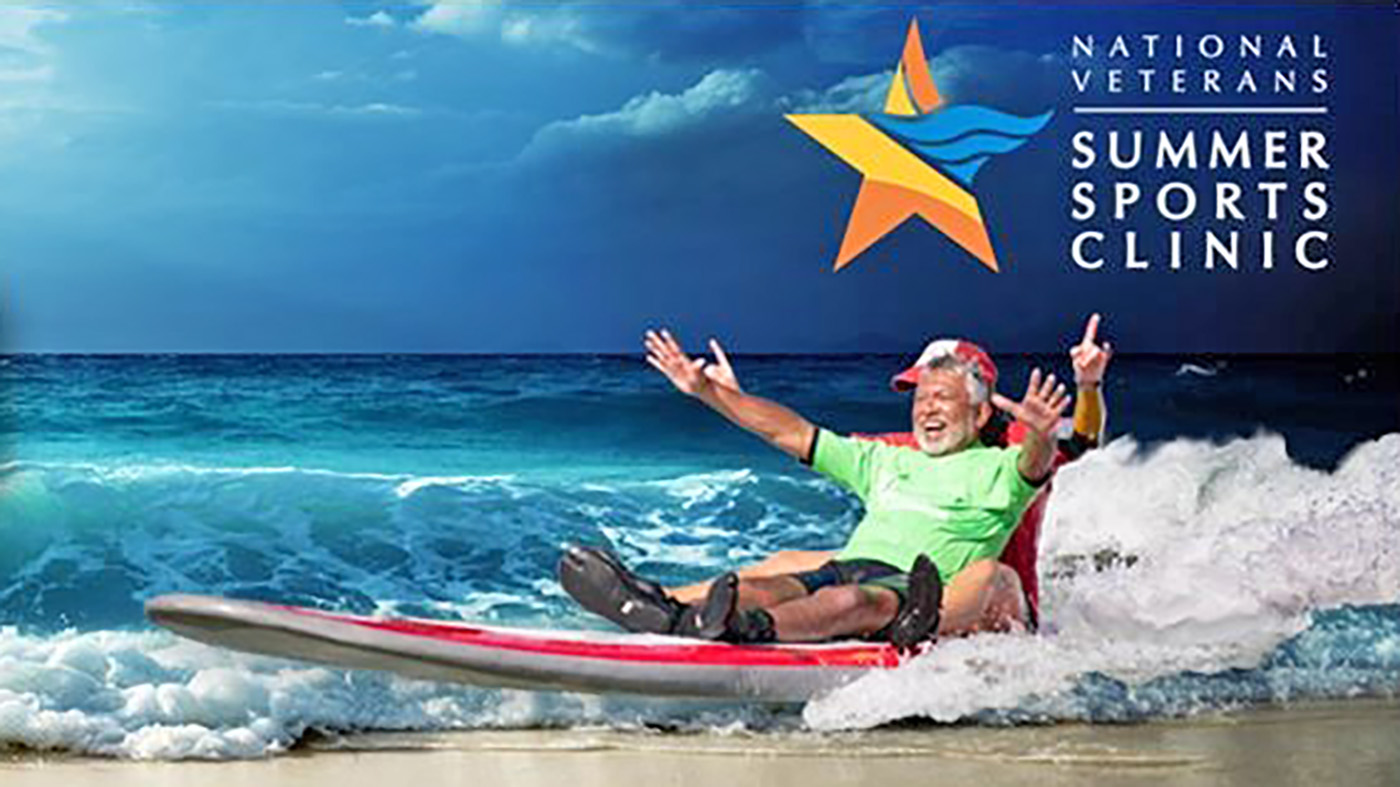VA Secretary Bob McDonald walked into his first experience at the National Veterans Wheelchair Games Tuesday in Dallas and witnessed the Veterans he serves paying that service forward – to nearly two dozen children with disabilities.
McDonald attended the annual Kids Day – a long-held tradition of the games that are now in their 35th year. Co-presented by Paralyzed Veterans of America and the Department of Veterans Affairs, the games invite local children with disabilities to be mentored by and play sports alongside competing athletes.
“All of these men and women have a big sense of purpose,” McDonald said. “They’re not in the military any longer, but the idea that they can bring in young kids who are in wheelchairs to demonstrate to them that they have a whole life ahead of them and can achieve things that they might not have thought were possible – and see successful people who have done it – is so meaningful.”
In addition to greeting children and athlete mentors, McDonald watched as Kids Day participants maneuvered a slalom course of challenging obstacles for wheelchair athletes.
“It takes what we do, which is a big sense of purpose – caring for Veterans – and it blows it up even bigger and shows that if we can care for Veterans, imagine what those Veterans can do for society in
terms of paying it forward,” McDonald said.
McDonald, a graduate of West Point and a five-year Army Veteran who served in the 82nd Airborne Division, spent the remainder of the afternoon watching Veteran athletes compete in quad rugby, power soccer, softball and wheelchair basketball. A rugby player at West Point, McDonald admitted, “I don’t think I played as tough a game of rugby as these guys played today.”
Over the years, the games have morphed into an important element of a Veteran’s rehabilitation, and McDonald stressed that the VA is committed to doing whatever it takes to help Veterans with disabilities – from post-traumatic stress to amputations to spinal cord injuries – recover both physically and emotionally. The NVWG – as well as other VA programs including equine therapy, animal therapy and acupuncture – all show that the VA is willing to “try anything that works,” he said.
“What we’ve discovered over the years is that adaptive sports is an incredible way to provide therapy to those who have been injured,” McDonald added. “That involves therapy in the physical sense, which is very important, and also in the spiritual sense, which I think is equally if not more important, because if you can get the Veteran to realize that their potential is unlimited, they’ll try things that they might never otherwise try.”
The NVWG also serve as an avenue for Veterans to compete on a national and sometimes international level, including the quadrennial Paralympic Games. McDonald said the options in terms of sports for wheelchair athletes are endless, and he hopes to see novices and experienced athletes take what they’ve learned and pay it forward in their communities.
“Athletics is a great way to express yourself and your individuality – whether it’s the way you design your wheelchair, or the way you play rugby, or the way you take your jump shot,” he said. To the athletes, he says: “Always reach for the stars. What I hope is that this is just the nucleus of the activity. When these Veterans get back to their geographic locations, I hope they go even further and involve more people. This event is really about teaching them to teach others.”
About the author: Brittany Ballenstedt is a military spouse, freelance journalist and photographer in Wichita Falls, Texas.
Topics in this story
More Stories
West Virginia mom builds confidence at the National Veterans Wheelchair Games.
Air Force Veteran Mark Wager overcame a stroke and is now competing in the 2024 National Veterans Golden Age Games.
Clinic offers a wide range of adaptive sports activities tailored to Veterans with physical and mental challenges.







